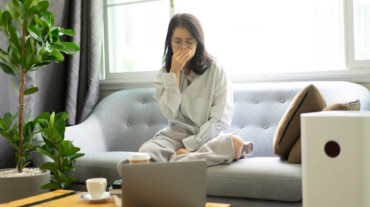
Diwali is the most exciting festival of lights, celebrations, and fun, but one hazard is that it can lead to dangerous rise in air pollution levels. After the bursting of firecrackers on Diwali, the air quality in Delhi and many other states has plummeted to ‘very poor’ levels. Prior forecasts from the System of Air Quality and Weather Forecasting and Research (SAFAR) indicated that the air quality could deteriorate to “severe” levels on Diwali itself and can get worse.
Poor quality of air in the city can have a negative impact on your health, especially for people with breathing problems. However, there are certain things an individual can do to avoid some of the effects of harmful pollutants. It will also help to reduce the level of toxins in the environment.

Exposure to toxic substances can have short and long-term consequences. Side effects of poor air quality can range from chest pain, difficulty breathing, coughing, throat irritation, and airway inflammation to lung tissue damage, decreased lung function, asthma, and increased susceptibility to respiratory infections. Globally, ambient air pollution is responsible for approximately 3 million premature deaths, primarily from lung cancer, heart disease, stroke, chronic obstructive pulmonary disease, and acute respiratory infections in children.
When pollution levels reach “hazardous” or higher, everyone must take precautions. Some people are more vulnerable to PM2.5 exposure. People with heart or lung disease (including asthma and chronic obstructive pulmonary disease-COPD), older adults, and children are the most vulnerable to particle pollution exposure. Pregnant women, newborns, and people with certain health conditions, such as obesity or diabetes, may also be more vulnerable to PM-related effects, according to research.
Avoid using firecrackers during Diwali because they emit many harmful toxins that make people unbreathable and can cause lung infections. Intake of these toxins can lead to dizziness, vomiting, nausea, and coughing. So, avoid going to places with high pollution levels and stay home if you can.
These recommendations may help reduce exposure during short-term pollution episodes in which PM2.5 levels are above 500 since fine particles (PM2.5) are the primary pollutant in smoke. Having said that, here’s what you can do a lot to protect yourself from pollution after Diwali.
You can’t necessarily see the particles in the air, so it’s important to remember to check your air quality in your city before doing any physical activities outdoors, especially post Diwali when you are exposed to smoke. A rise in air pollution means high exposure to toxic pollution levels, which can be hazardous.
One of the best ways to limit exposure to bad air pollution is staying indoors. You can stay in a filtered room or building and reducing your activity levels. Doing this can help reduce the particle pollution you breathe into your lungs.

Particle pollution can enter your home, so if you live in a polluted area, consider purchasing an air cleaner. High-efficiency mechanical filters and electronic air cleaners are examples of particle-removing air cleaners. If you don’t have air cleaners in your home, try going somewhere with air filtration. This could be a friend’s house, for example, if it has air filtration.
If you can’t afford filters for your entire house, make a clean sleeping area. A room with as few windows and doors as possible, such as a bedroom, is a good choice. Keep the windows closed if the room has them.
Select Topics of your interest and let us customize your feed.
PERSONALISE NOWIf you are certain that your air conditioner does not draw air from outside and has a filter, turn on an air conditioner or central air conditioning system. Keep the fresh-air intake closed if the air conditioner has a fresh-air option. Check that the filter is clean enough to allow for adequate airflow indoors.
Avoid activities that cause you to breathe more quickly or deeply. This is an excellent day for indoor activities such as reading or watching television.

Take extra precautions to reduce pollution in your home. Air cleaners alone may not be sufficient. Since particle pollution from outdoor air can easily enter the home, take precautions to avoid adding even more pollution indoors when outdoor PM2 levels are high. Here are some other things you should follow:
Do not rely on dust masks to protect yourself. Large particles are captured by dust or cloth masks. These masks will not protect your lungs from PM2.5 particles. Scarves and bandanas are also ineffective.
If you need to be outside for an extended period of time, disposable respirators such as N-95 or P-100 respirators will come in handy. It is critical that you correctly wear the respirator.